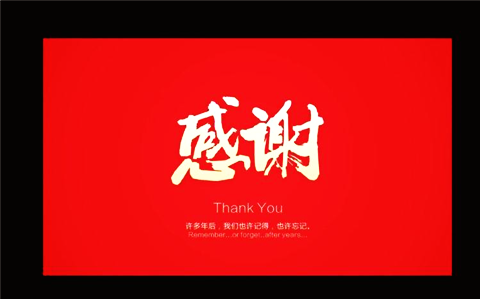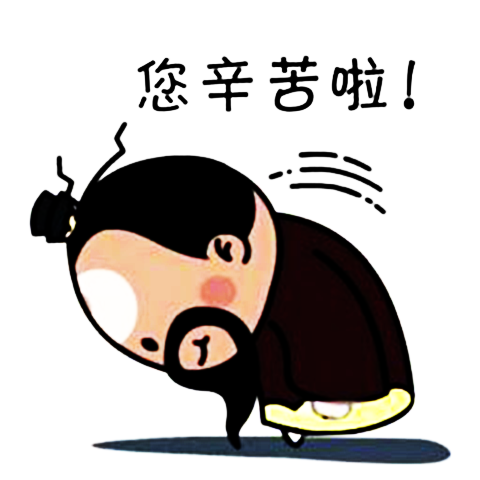Thanksgiving is coming! It will be a good chance to look back on results of this past year, as well as a good opportunity to thank family, friends and yourself.

A pillar of Chinese culture is that of respect and “感恩 (gǎnēn) gratitude” for what other people do for you, so how do Chinese people express their thanks?
感恩 (gǎnēn): n. gratitude, thanksgiving; adj. grateful
Examples:
wǒmen yào dǒngdé gǎnēn.
我们要懂得感恩。
We should know how to be grateful.
wǒ xué huì le gǎnēn.
我学会了感恩。
I learned to be grateful.
谢谢 (xièxiè): n. thanks; “Thank you”
To directly thank someone is the most basic way to show them you’re grateful, whether you’re formally accepting a gift from a business partner, acknowledging that your kid cleaned up after herself, or anything in between.
If someone passes you a napkin, tells you how to get where you’re going, or helps you solve a problem, you can say, “谢谢(xièxiè)”. Here are some other ways to tell someone you appreciate what they’ve done in a slightly more formal way:
多谢 (duōxiè) — “Thanks a lot”
This is often used more in text messages, emails, or as opposed to writing or typing 谢谢. It can be appropriate for casual spoken conversations as well, like when someone hands you the report you asked them for at work.

感谢! (gǎnxiè) — “Many thanks!” or 非常感谢你! (fēicháng gǎnxiè nǐ!) — “Thank you very much!”
These can be used for more formal or extreme situations where you owe someone serious gratitude. This variation is appropriate for many semi-formal interactions.
Examples:
A:wǒ kěyǐ jiāo nǐ xué zhōngwén.
A:我可以教你学中文。
A: I can teach you Chinese.
B: fēicháng gǎnxiè nǐ.
B:非常感谢你。
B: Thank you very much.
多亏了你 (duōkuī le nǐ)

“多亏(duōkuī)” means you get something because of the help or the advantage provided by someone else. “多亏了你 (duōkuīle nǐ)” can be extended to mean something like, “Thanks to your help, I can accomplish what I want to. The level of thanks expressed is greater than that of simply, “谢谢(xièxiè)”.
Simply put, “多亏了你(duōkuīle nǐ)” can be roughly understood as, “Without your help, it would not be the way it is.”
Examples:
duōkuī le nǐ, wǒ cái néng shùnlì wánchéng gōngzuò.
多亏了你,我才能顺利完成工作。
Thanks to you, I can finish the job smoothly.
duōkuīle nǐ de bāngzhù.
多亏了你的帮助。
Thanks for your help.
辛苦了(xīnkǔ le)

This phrase exposes a unique cultural aspect, as there is no exact translation of the sentiment in Western culture (or the English language), but it is common in China. In China, when you make a request of a colleague even though in essence the task is his or her job, we often add a, “辛苦了(xīnkǔ le)” to express a sense of thanks and recognition of their effort.
辛苦 (xīnkǔ) means “difficult”, and “辛苦了 (xīnkǔ le) can be roughly understood as, “You are working hard”.
Example:
A: kěyǐ bāng wǒ xiūgǎi yì zhāng túpiàn ma?
A:可以帮我修改一张图片吗?
A: Can you edit a picture for me?
B: dāngrán kěyǐ.
B:当然可以。
B: of course you can.
A: xīnkǔ le.
A:辛苦了。
In addition to directly thanking someone or acknowledging their work, it also is used for courtesy and toning down the tone of speaking so that a request might not sound so demanding.
Example:
A: jīntiān xiūgǎi le yìtiān de PPT.
A:今天修改了一天的PPT。
A: I spent the whole day editing a presentation today.
B: xīnkǔle, xīnkǔle.
B:辛苦了,辛苦了。

_______, wǒ cái néng yǒu rúcǐ dà de jìnbù.
_______,我才能有如此大的进步。
_______, I could make such a big improvement.
1. 辛苦了 (xīnkǔle)
2. 多亏了你 (duōkuīle nǐ)
3. 谢谢 (xièxiè)
You May Want to Learn More:
An “Interesting” Explanation of “有趣(yǒuqù)” and “有意思(yǒuyìsi)”
How to Properly Use 以前(yǐqián) and 从前(cóngqián)? Take the Quiz!
Popular Words-淡定 (dàndìng) Be Calm 唠嗑 (làokē) Chat

Chinese Popular Words (Fun Stuff)
General Chinese (Beginner Level)
General Chinese (Intermediate Level)



